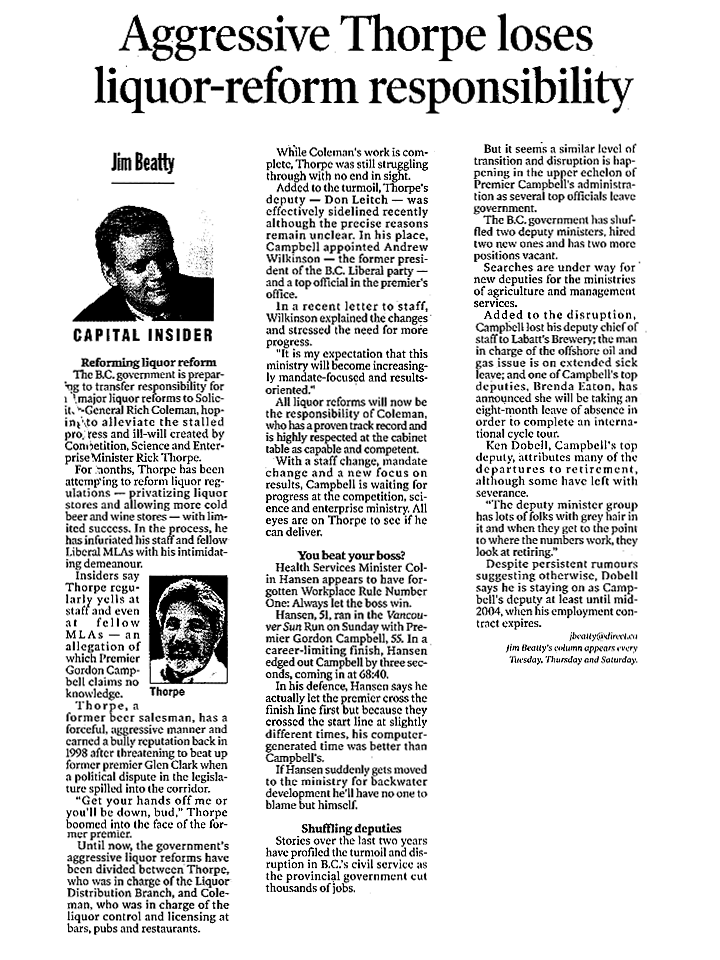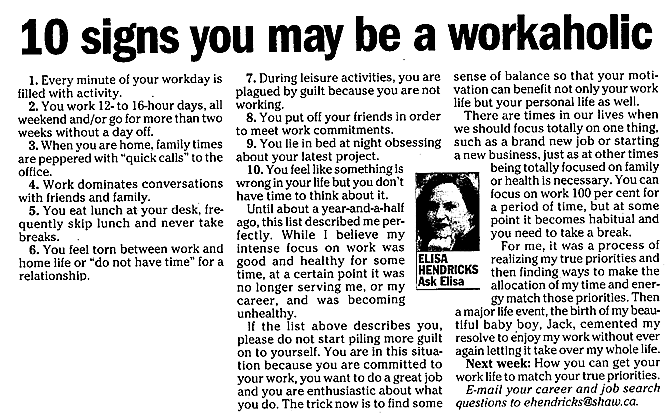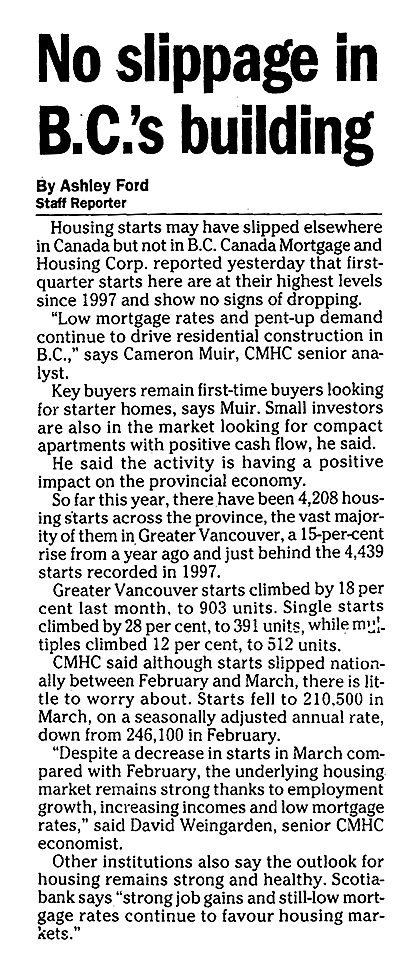Wyng Chow
Sun

CREDIT: Glenn Baglo, Vancouver Sun Realtor Ken Leong has done well on ‘flipping’ condos.
It’s quick and easy money, and perfectly legal.
It’s commonly known as “flipping,” or, in real estate jargon, “assignment of contract.”
In today’s hot condominium market — particularly in downtown Vancouver, where billions of dollars worth of units are currently in various stages of construction — many sharp realtors and savvy investors are cashing in, often reaping huge windfalls.
“It’s making a profit without doing anything,” said realtor Ken Leong, who has flipped half a dozen properties at five downtown projects in the past year or so.
Even after capital gains tax, the net results for successful flippers can be impressive, upwards of $100,000 in some cases involving luxury waterfront homes.
The practice has become so prevalent in the past few years (although few are willing to discuss the sensitive issue on the record), that at least a couple of major developers, most notably Concord Pacific Group Inc., have been prompted to implement no-flipping clauses in their sales contracts.
Polygon Group has always adhered to that policy. Officials for both companies say they don’t want flippers competing with them while they’re trying to market their own product.
“It’s a philosophical idea we’ve adopted,” said Tracie McTavish, sales director for Concord, which is about at the half-way point of its $3-billion redevelopment of the former Expo site on the north shore of False Creek.
“We’re a big site, where we’re building more than a thousand units a year. If we allowed assignments of contracts, we could be competing against ourselves in the secondary market.
“Once a building is completed, more power to the original purchaser if he wants to resell his unit.”
Said Polygon senior vice-president Neil Chrystal: “We don’t want to compete with people reselling their units before we’re [sold out]. We want to see them complete their original purchase.
“We actively market more to end-users than to investors. Once they complete their purchase, we think it’s good if our original home buyers make a profit if they decide to resell.”
Concord imposed its new policy after a significant number of sales contracts were reportedly flipped — many of them originally snapped up by realtors — at the 38-storey West One, the tallest residential tower in Vancouver, located at 1408 North Strathmore Mews, near Pacific Boulevard and Drake Street.
While developers like Polygon and Concord stick to their conviction, most other major downtown developers allow flipping, usually subject only to flippers paying an “administration fee” of, say, $500. These developers, including Bosa Ventures Inc., Concert Properties, Qualex-Landmark, and Amacon-Onni, regard the policy as a marketing tool during project presales.
Colin Bosa, vice-president of Bosa Ventures, said his company’s outlook was that, if a developer is satisfied with the original price he sold his product for, he should not stand in the way of what the purchaser decides to do with his unit.
Last month, Leong, of Re/Max Real Estate Services, flipped a unit he purchased last year at Domus, at Homer and Helmcken streets, for $300,000. He originally paid $243,000 for the 904-square-foot, two-bedroom-and-den unit on the sixth floor of the 135-unit building.
On behalf of a client, he also sold a 1,017-square-foot, one-bedroom-and-den unit on the fifth floor at Domus for $317,500, or $34,500 more than the vendor’s original purchase price.
At the luxury Coal Harbour condo project at 1680 Bayshore Dr., Leong said a former client failed to complete her original $303,000 purchase of a 1,030-square-foot, two-bedroom and den unit. The buyer’s aunt stepped up and took over the contract at that price, then flipped the unit a month later for $401,000.
At Alda, on Hamilton near Drake, a buyer who originally paid $300,000 for a 920-square-foot, two bedroom and den, sold the unit for $375,000, Leong said.
“The guy who bought the flip listed it again and sold it for $417,500,” the realtor said.
“For people who made their original purchases last year, assignment profits this year have ranged from 12 to 24 per cent, about 15 per cent on average.”
Given today’s hot condo market, Leong pointed out that flippers face little risk, since developers usually require initial down payments of five to 20 per cent, with the balance due only on project completion, which could be a year or two down the road.
The flipping phenomenon is being driven by the current insatiable appetite for condos, especially downtown, where despite a building boom developers still can’t keep up with demand.
Multiple Listing Service figures show that in March, the number of available new condos in Greater Vancouver dropped 43 per cent to 402 units, down from 709 the previous year.
Meanwhile, the average price of a new unit has risen 20 per cent to $352,100, up from $295,100.
On Vancouver‘s west side, which includes the downtown area, inventory is even tighter and prices much higher.
MLS data shows there were 204 active listings of new condo units last month, a drop of 37 per cent from 324 units in March 2002. The average selling price was $509,300, up 36 per cent, or $134,400, from $374,900 a year ago.
On net profits made through flipping (after real estate commissions and other costs incurred are paid) 50 per cent of the capital gain is taxable.
For flippers who make the practice a full-time endeavor, all net profits are considered to be taxable income.
© Copyright 2003 Vancouver Sun








